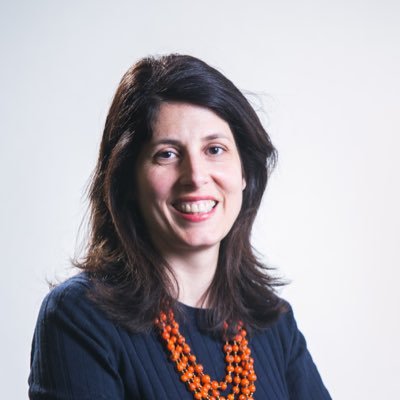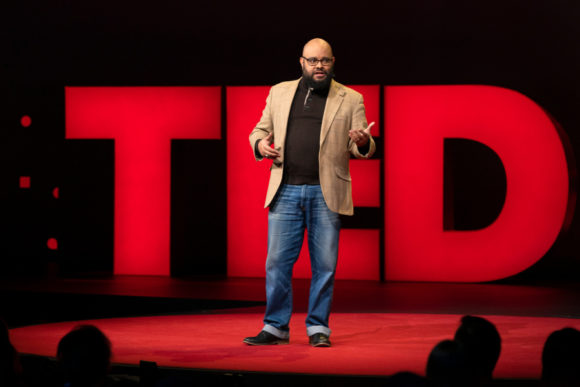Maria J. D’Agostino — Negotiating Bias in the Workplace
If gender inequity is baked into today’s workplace, what can John Jay students and other Master in Public Administration (MPA) candidates do to fix the problem? Dr. Maria D’Agostino, with co-authors Helisse Levine (LIU-Brooklyn) and Meghna Sabharwal (UT-Dallas), published an article in the Journal of Public Affairs Education in March that represents the first step toward answering that question.
Dr. D’Agostino, an Associate Professor in the Department of Public Management, has focused her recent research on women in public administration. Not only are women — along with other persons whose gender presentation isn’t traditionally male — underrepresented in leadership and management roles but, according to the theory of Second Generation Gender Bias, the workplace isn’t even built to accommodate the needs of anyone but men.
Longstanding cultural beliefs and biases, formed over many decades, put up invisible barriers to women’s advancement, and workplace structures and practices can inadvertently favor men. One such practice is negotiation, which figures prominently in 21st century workplaces. When negotiating for starting salaries and other benefits, studies show that men see better negotiation outcomes than women, and that these differences are more due to stereotyping and structural bias than to behavioral differences. Negotiated Order theory, which has also heavily influenced D’Agostino’s work, suggests that the results of biased negotiations build up over time, meaning that when women or people of marginalized genders start out behind, they usually stay behind.D’Agostino believes that MPA programs are a great place to take on these challenges. “A lot of experimentation goes on in the public sector,” she said, giving examples of vital pieces of legislation that have trickled down from government policy to private sector workplaces, including Title IX, Paid Family Leave, and New York City’s 2017 law barring employers from asking about applicants’ salary history.
According to D’Agostino, MPA graduates are often perfectly placed to address inequality. “[Graduates] work in city, state, and federal government, they work in nonprofits, and in the private sector. The essence of public administration is serving the public and the common good, and they are the face of that; they are the decision-makers in terms of creating policy that becomes city, state, and federal law, which can even spread to the private sector. They are both creating and implementing policy, so they have a big impact on the future.”
It is therefore a concern for D’Agostino and her colleagues that more MPA programs aren’t tackling issues of workplace inequality head on. In her study, researchers surveyed MPA administrators to find out how many programs around the country offer courses in negotiation, let alone courses that incorporate elements of gender bias into coursework. They found that “none of the programs offered a standalone course on gendered negotiation, and those that offered courses on negotiation generally only focused on transactional portions,” said D’Agostino.
Her suggestion? Incorporate second generation gender bias into curricula as a core competency for all MPA programs. Raising awareness among students in the field could lead to big changes inside workplaces, but also in the ivory tower. “Academics could do more research, which could inform practice, which would affect training, which would impact the field in terms of gender equity.”
These are big dreams for sweeping change in MPA programs and in offices across the U.S. For now, D’Agostino and her colleagues are developing a conceptual framework for talking about the issue. Her next step is to interview both men and women in various positions in seven states, to try to understand the implications of second generation gender bias as they play out in real workplaces and to hear about real workers’ experience with bias.
You can find the full article, “Gender in negotiation: Preparing public administrators for the 21st century workplace,” online at the Journal for Public Affairs Education’s website.
 Maria D’Agostino is an Associate Professor in John Jay College’s Department of Public Management. She is also the co-founder of Women in the Public Sector at John Jay, a program which educates, engages, and fosters a consortium of students, faculty, public service practitioners, and community members interested in women in public service. It promotes gender equality and provides opportunities to address gender issues in public service.
Maria D’Agostino is an Associate Professor in John Jay College’s Department of Public Management. She is also the co-founder of Women in the Public Sector at John Jay, a program which educates, engages, and fosters a consortium of students, faculty, public service practitioners, and community members interested in women in public service. It promotes gender equality and provides opportunities to address gender issues in public service.
Dr. D’Agostino is the co-recipient, with WPS co-founder Dr. Nicole Elias, of the 2018-19 Inaugural Presidential Student-Faculty Research Collaboration Award from John Jay’s Office of Student Research and Creativity, for the examination of gender equity in municipalities. Her recent research has focused on women in public administration, including a 2018 co-edited book, Governing in a Global World: Women in Public Service.
Dr. Phillip Atiba Goff – Data Science for Justice

On April 16, 2019, John Jay College’s Franklin A. Thomas Professor in Policing Equity Dr. Phillip Atiba Goff spoke at Session 4 of TED2019 in Vancouver. The program featured eight speakers representing eight projects that are receiving funding from The Audacious Project in 2019. Dr. Goff spoke on behalf of his independent non-profit organization, the Center for Policing Equity (CPE), which was one of this year’s Audacious Projects.
CPE focuses on addressing racism in the United States. According to Dr. Goff, “When we change the definition of racism from attitudes to behaviors, we transform that problem from impossible to solvable.” CPE’s project, COMPSTAT for Justice, is a database leveraging data collected from police departments and cities on police behavior in an effort to identify problem areas where specific police behaviors can change.
With the support of The Audacious Project, CPE wants to extend the results it’s already seen with partners adopting COMPSTAT for Justice, by delivering the project to police departments serving 100 million people across the United States over the next five years.
To hear Dr. Goff’s TED Talk, visit the @TEDTalks Twitter page, where the link to the livestream is still up. You can read more about Session 4 of TED2019 on the TEDBlog.



Recent Comments